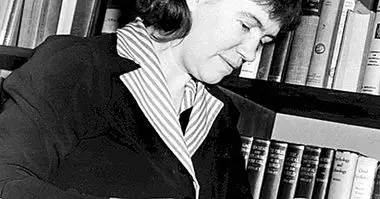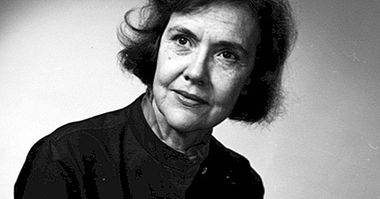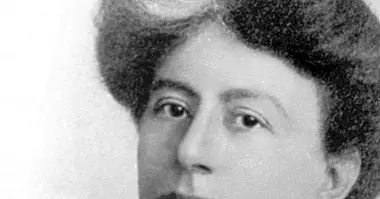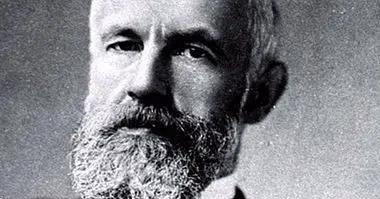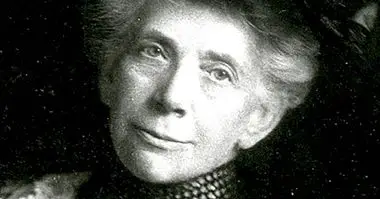Claude Robert Cloninger: biography of this famous personality psychologist
The study of human personality has been carried out from very different approaches and through different strategies. Today we know that personality traits are characteristics that are developed and solidified throughout our development, from an innate biological predisposition.
And is that a part of our personality and the traits that configure us are inherited from our ancestors. Claude Robert Cloninger is one of the many authors who have developed a theoretical model regarding the structure of personality, based on it in psychobiology. In this article we will briefly review the biography of Cloninger and his contributions to the world of psychiatry and the psychology of personality.
- Related article: "History of Psychology: authors and main theories"
Biography of Claude Robert Cloninger
Claude Robert Cloninger was born in the Texan community of Beaumont April 4, 1944. He is the son of Morris Cloninger, entrepreneur and teacher of English, and the actress of Marie Concetta Mazzagatti Cloninger. His family of origin has a great interest in the field of art having been patterns of various associations linked to various arts and having taught him, according to the author's own words, to live consistently.
Academic training
Robert Cloninger was initially formed at the University of Texas , entering it in 1962. There he would realize pre-medical studies and also he also trained in psychology, anthropology and philosophy. He would finish his studies at this university in 1966.
Later he joined the University of Washington, where he deepened in the study and research in the health field and carried out a research fellowship in preventive medicine and public health.
In 1969, he began to take an interest and investigate together with Samuel Guze in the field of psychiatry, specifically in the reasons why some mental disorders are frequently replicated by different members of the same families. This would also lead him to work in the field of genetic and cultural transmission , doing different studies in this regard. He deepened in these studies different sites and together with other great researchers.
Studies and research areas
This author has been prolific and has conducted numerous investigations on various topics. He has made a great number of publications in the form of articles and books and has been awarded prizes such as the Adolf Meyer Award by institutions as renowned as the American Psychiatric Association (or APA).
His research focuses on diagnosis and treatment in order to provoke an increase in the quality of life of both healthy people and people with mental disorders , working from the identification and treatment of the causes of mental disorders and taking into account both biological elements (which focuses on studying the genetics of disorders) and cultural and educational.
So, your interests have focused on aspects such as personality traits , the biological and environmental factors that facilitate and / or regulate mental disorders or well-being, genetics and anthropology. He has also expressed his interest in the study of human needs and how they influence our personality, self-concept and well-being.
Cloninger and the study of personality
One of the largest and best known contributions to the field of psychology by Cloninger are his studies in regard to personality, both healthy subjects and individuals with different disorders in this regard.
- Related article: "Differences between personality, temperament and character"
Cloninger's personality model
Specifically, it highlights the model proposed by the author, which proposes that the personality is a system of behavioral models derived from the functioning of the neurochemical systems of our body and social learning, both working together in the management of behavior and the patterns with which we usually act.
It proposes the existence of temperament as an element of integration of the functioning of the different systems of biological character that allow the organism to regulate the behavior to adapt to the environment (largely mediated by neurotransmitters). Within the temperament we can find four variables that explain the personality, being these the avoidance of pain, the search of novelties, the dependence of the reward of the behavior and the persistence of the behavior.
It also recognizes and incorporates the existence of variables in the control of behavior that are derived from the learning carried out throughout the life cycle. It's about character, which allows us to relate to ourselves and the world voluntarily based on what we have lived. Typical character variables in personality settings they are the self-direction or ability to control one's behavior, cooperation or ability to relate positively to others and self-transcendence as the aspect by which we place ourselves in the world.
This model has been developed over more than fifteen years, starting in 1986, and involves a factorial approach to personality from a biopsychosocial vision. Initially, only temperamental variables would be taken into account (with the exception of persistence, which was considered derived from the search for experience), although temperament variables were added throughout the nineties and the persistence as another independent temperamental variable.
Development of measuring instruments
Cloninger's performance in the study of personality has not been limited to the creation of a theoretical model, but has also included the development of instruments to evaluate it.
In this aspect Cloninger developed in 1987 and later would be improving along with other authors the Three-dimensional Personality Questionnaire or TPQ . This test is a questionnaire in which the patient or subject analyzed must answer a hundred questions (whose answers can only be true or false) and through which the dimensions of temperament are analyzed (avoidance of harm, dependence on reward and search for news)
This questionnaire would be modified and, after Cloninger considered the existence and importance of the characteristic variables, it would be created the Temperament and Character Questionnaire or TCI in 1993 (which would later be revised).
- Maybe you're interested: "Types of psychological tests: their functions and characteristics"
Present
Currently, Robert Cloninger serves as professor of psychiatry, psychology and genetics at Wallace Renard. He is also director of the Welfare Center at the University of Washington and forms part of various divisions and committees of different institutions, being a member among them of the Institute of Medicine of the National Academy of Sciences.
Bibliographic references:
- Bayón, C. (2006). Psychobiological personality model of Cloninger: Integrative approach in the evaluation of personality disorders and psychotherapeutic process. Alcalá de Henares University. Madrid. Spain.
- Bermúdez, J. (2004). Psychology of the personality. Theory and research. (Vol I and II). Didactic Unit of the UNED. Madrid.
- Cloninger, C.R. (2004). Feeling good: The science of well-being. New York: Oxford University Press.
- Hermangómez, L. & Fernández, C. (2012). Psychology of Personality and Differential. CEDE Preparation Manual PIR, 07. CEDE: Madrid.


